Modular Shell Structure

Curved-line folding is the act of folding a flat sheet of material along a curved crease pattern in order to create a three-dimensional shape. It is a creative and innovative way to produce lightweight and geometrically stiff components using only sheet materials. The pavilion presented in this paper by Stijn Brancart, Aline Vergauwen, Kelvin Roovers, Dimitri Van Den Bremt, Lars De Laet and Niels De Temmerman integrates this principle in a kit-of-parts system.
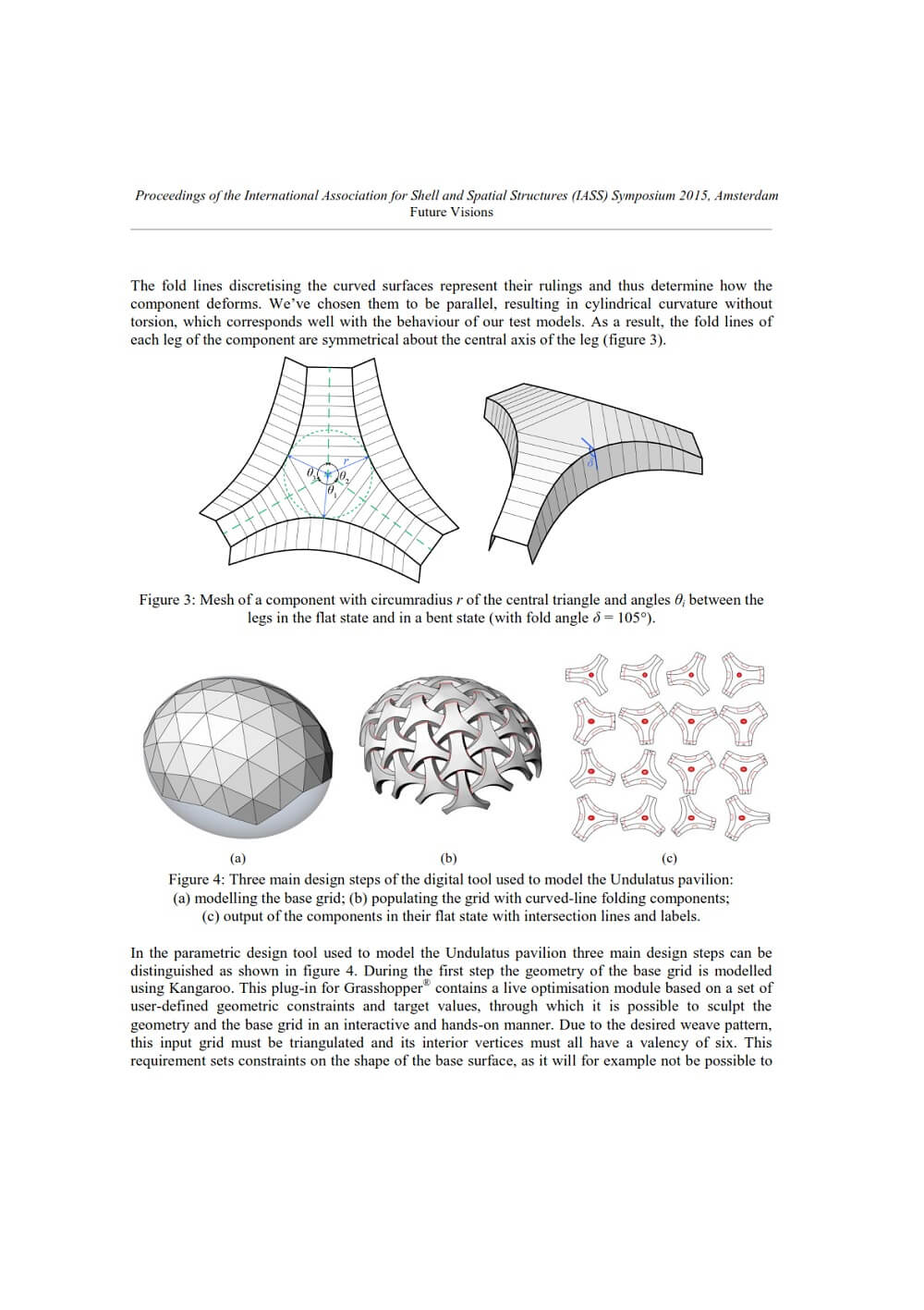
After being cut out of flat plates, the components get their 3D shape by folding them along a set of predefined curved lines. This deformed geometry, variable in its degree of bending, results in a structurally efficient ‘building block’ that can be combined into different structural configurations depending on its mode of assembly. The components form a weave pattern by connecting them ‘flap to leg’ respectively. As such, adjacent components lock each other into their rigid three-dimensional configuration and a modular shell structure is obtained.
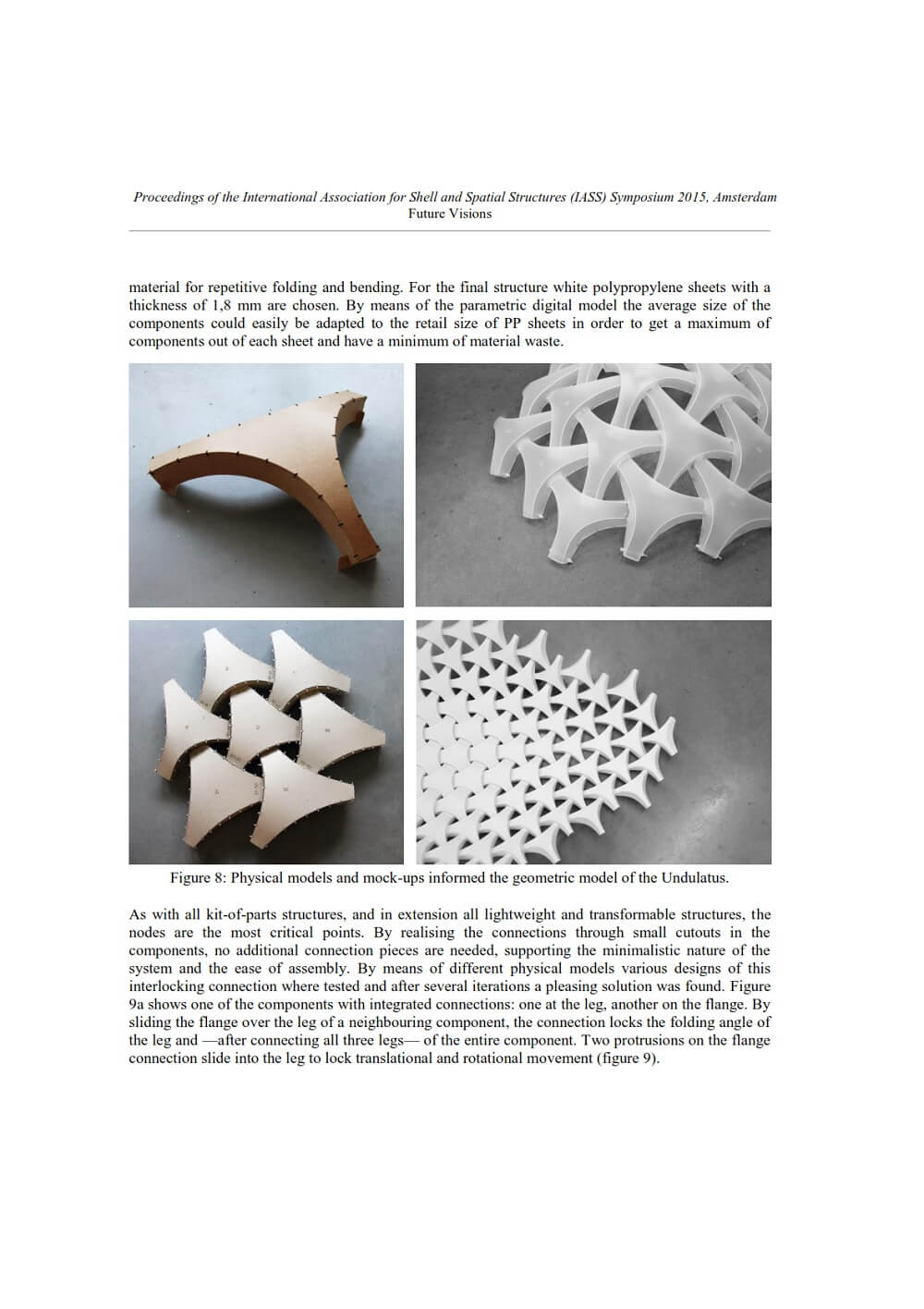
When composed of identical components, the obtained structure combines the advantages of rapid fabrication and assembly with an extensive reuse of components. However, the pavilion demonstrates that more geometrically and aesthetically challenging compositions, consisting of a series of custom-made components, are also possible and manageable when using digital fabrication techniques. Furthermore, this paper presents and discusses the digital modelling methods used for the design of the pavilion, as well as the lessons learned by real scale fabrication and assembly.
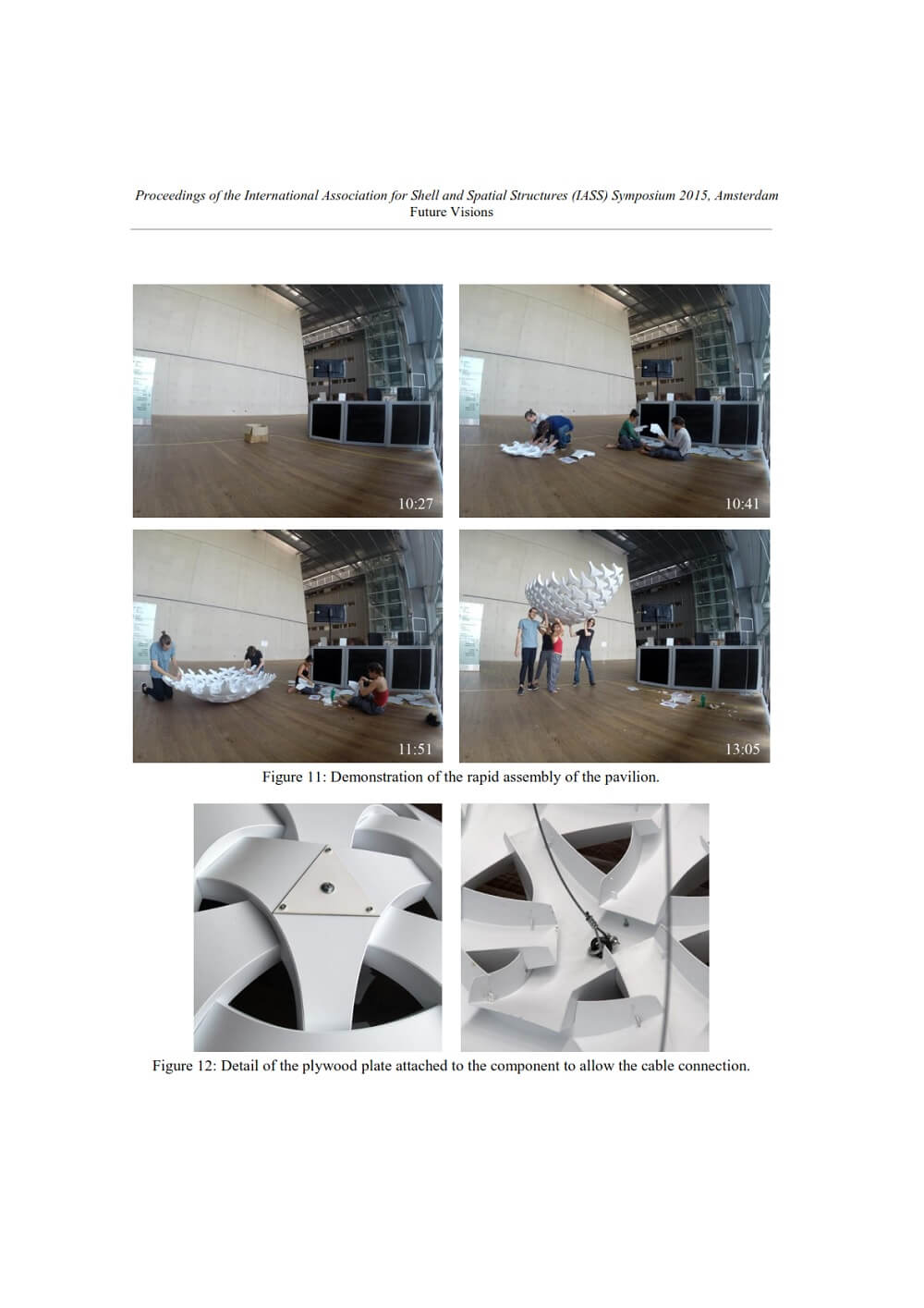
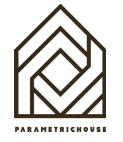



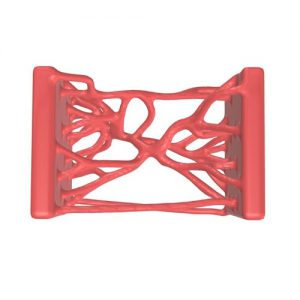
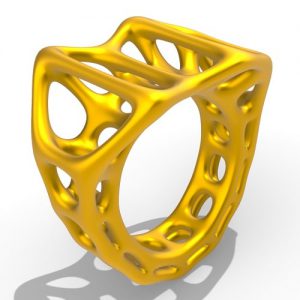
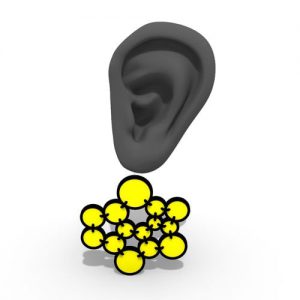
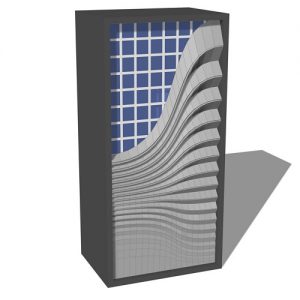
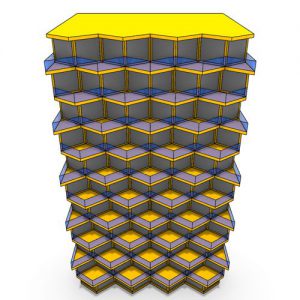
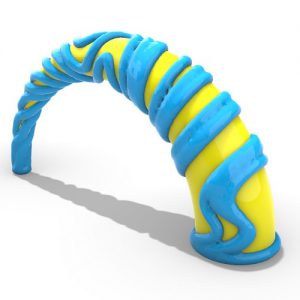
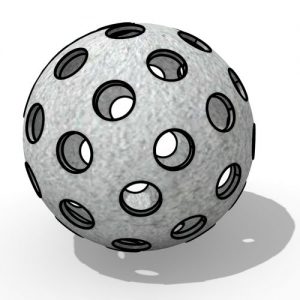
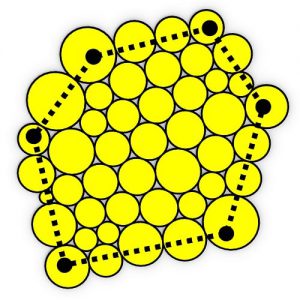
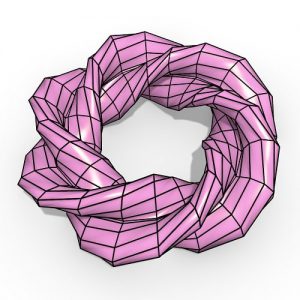
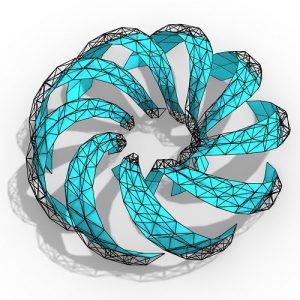
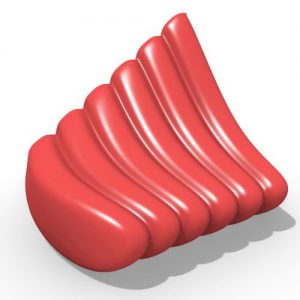
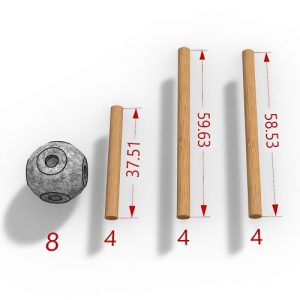

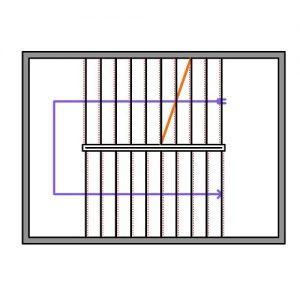
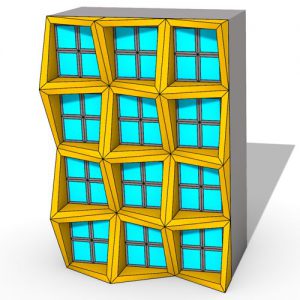
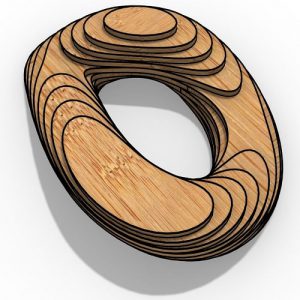
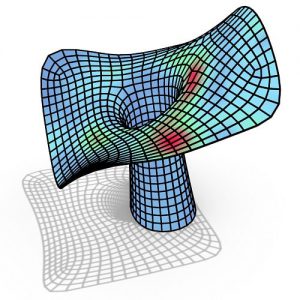
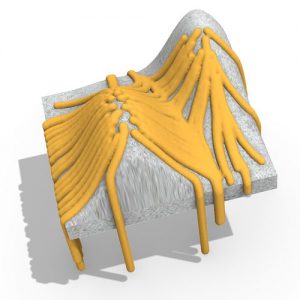
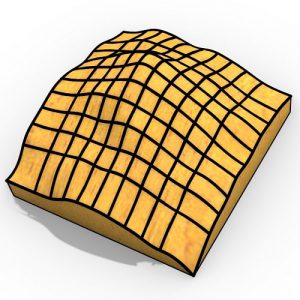
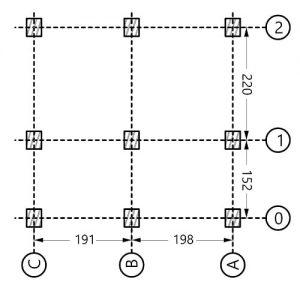

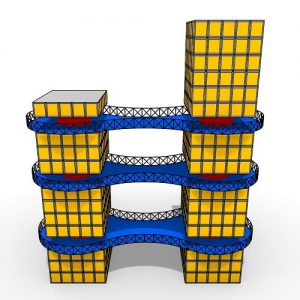


Comments